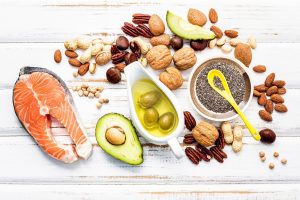1. Avocado
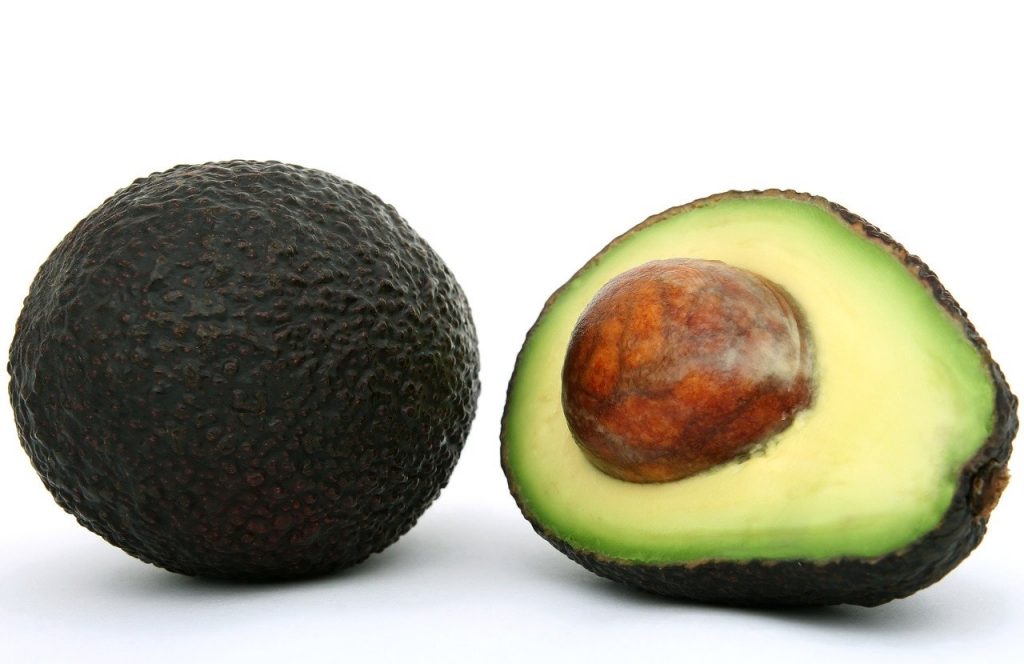
One medium-size avocado contains approximately 29 grams (g) of fat and 322 calories. It is high in a monounsaturated fatty acid called oleic acid, which is believed to provide several health benefits.
Avocados are high in fiber, with one fruit providing 13.5 g of the recommended 25 grams for females and 38 grams for males per day. Avocados also contain a substance called lutein, which may be necessary for eye health and are a rich source of potassium.
How can I add avocado to my diet?
- Use avocado in salads or to replace less healthful saturated fats, such as mayonnaise and butter.
2. Chia seeds
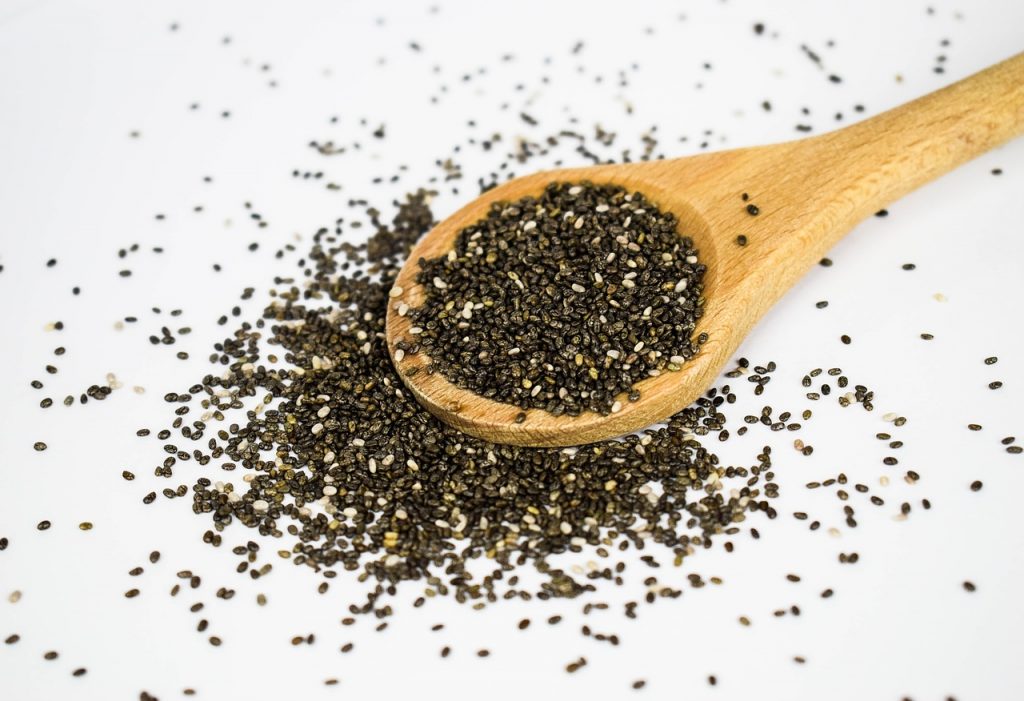
Although they are small in size, chia seeds are rich in several nutrients. One ounce (oz) of the seeds contains 8.71 g of fat, much of which is made up of omega-3 fatty acids. Chia seeds are, in fact, one of the best plant-based sources of omega-3.
Chia seeds also provide antioxidants, fiber, protein, iron, and calcium.
How can I add chia seeds to my diet?
- Use chia seeds in smoothies, soak them overnight for a ready-made breakfast, or mix them with water to make a vegan egg-replacement in cooking.
3. Dark chocolate
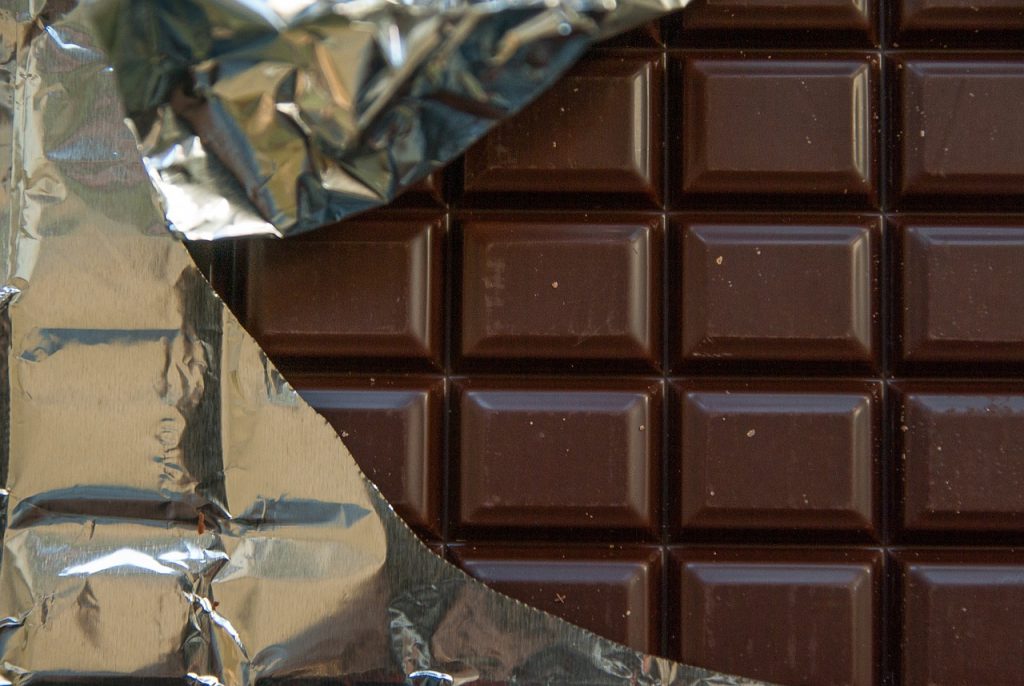
Eating just 1 oz of dark chocolate can be enough to stave off sweet cravings, while providing a good amount (9 g) of healthful fat, as well as other nutrients, such as potassium and calcium. Dark chocolate also contains 41 milligrams (mg) of magnesium, which is approximately 13 percent of the recommended dietary allowance (RDA) for adult females.
How can I add dark chocolate to my diet?
- Select good-quality dark chocolate — at least 70 percent cocoa — to ensure a high level of flavonoids.
4. Eggs

Eggs are a popular source of protein, especially for vegetarians. Traditionally, people believed that egg whites were the more healthful part, but the egg yolk actually contains several important nutrients. Each 50 g hard-boiled egg boasts 5.3 g of fat, 1.6 of which are saturated, and just 78 calories.
The yolk also contains vitamin D and choline, a B vitamin that supports the function of the liver, brain, nerves, and muscles. The yolk also contains other phytonutrients, including lutein.
While older studies have suggested that eggs increase cholesterol, newer research disputes this. A 2018 study carried out on Chinese adults, for example, reported that up to 1 egg a day might lower the risk of cardiovascular disease.
How can I add eggs to my diet?
- Start the day off with a vegetable-packed omelet, or top a pasta dish with a poached egg to add some protein and healthful fats to an otherwise carbohydrate-heavy dinner.
5. Fatty fish
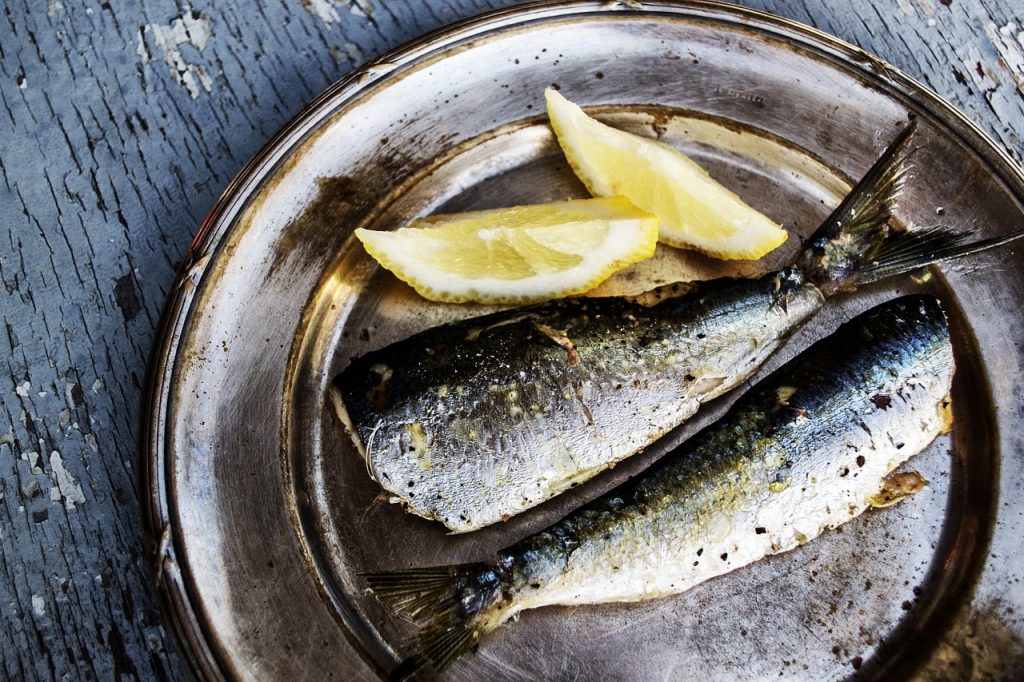
Fatty fish are packed with unsaturated and omega-3 fatty acids that play an important role in heart and brain health. The American Heart Association recommend that people eat 2 servings of fatty fish each week. Options include:
- fresh (not canned) tuna
- herring
- mackerel
- salmon
- sardines
- trout
For example, 1 oz of mackerel contains approximately 15 g of fat and 20 g protein.
Avoid high-mercury fish, such as shark, swordfish, King mackerel, and tilefish. To avoid overexposure, stick to 12 ounces (2 average meals) of fish and shellfish weekly.
How can I add fatty fish to my diet?
- Serve baked fish with rice and vegetables, enjoy tuna in sushi rolls, or flake warm salmon over a salad.

